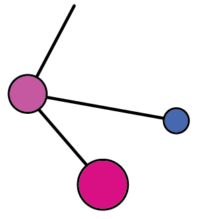OUR STORY
Linnane Pharma’s goal is to alleviate cancer suffering and to offer new treatments for bacterial infections – thereby reducing the need for toxic chemotherapies and the threat of antibiotic resistance.
Our projects:
I. Cancer therapy – new drug candidates offer highly effective, less toxic alternatives to cancer therapy.
II. Immunotherapy for infections – novel immunotherapies offer efficient alternatives to antibiotics, combining anti-inflammatory and anti-bacterial effects.
III. Novel therapeutic concepts addressing important illness or health issues.
IV. A discovery, technology and competence platform.
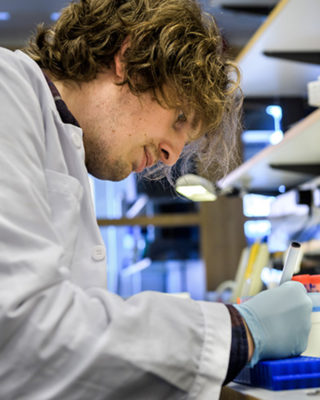

I. MYC
Cancer cells grow too fast, outcompete cells in healthy tissues and often spread to distant sites, where they cause metastases. Understanding what makes cancer cells so efficient and threatening and to stop them has always been the core of cancer research. Early studies identified so-called ‘’oncogenes’’; genes that are responsible for the creation of cancer cells and their competitive success. This is why Nixon, when he declared a ”war on cancer’’, intended for science to find and stop the oncogenes.
MYC has been named ‘’the quintessential oncogene’’ and is deregulated in the majority of human cancers. Still, finding c-MYC inhibitors for therapeutic use has been problematic and MYC itself has long been viewed as “undruggable”. A vast number of technical approaches have been tested, targeting both MYC itself and its cofactors in cancer cells, but without success. This is due, in part, to the side effects that occur if MYC is inhibited. There is a need for MYC to be functional in healthy tissues, just not at the exaggerated levels that occur in cancer cells. Despite a vast number of technical approaches, drugs targeting MYC itself and its cofactors in cancer cells are not in clinical use.
We have discovered a novel strategy for achieving c-MYC inhibition, involving specific bacterial effector molecules. We made the surprising observation that uropathogenic E. coli activate c-MYC degradation and attenuate MYC expression in host cells and tissues. We further identified the bacterial molecules responsible for this effect. A protease is shown to rapidly degrade c-MYC in cancer cells, and by producing larger amounts of the protease it was possible to demonstrate treatment effects in bladder and colon cancer models. Long-term protection, defined by delayed tumor progression, increased survival and low toxicity further supports the therapeutic potential of this molecule. These results suggest that bacteria have evolved strategies to control c-MYC tissue levels in the host, which can be exploited to target c-MYC therapeutically in different cancers.
II. Nutritional supplements under development.
Novel molecules based on alpha lactalbumin from cow’s milk, have the potential to be used as a food additives, “functional” foods or beverages to promote health in the stomach and intestine.
The HAMLET-like complex BAMLET is made from bovine alpha lactalbumin and oleic acid. Bovine α-lactalbumin shows 85% sequence homology with the human protein and the complexes have very similar properties. Bovine alpha lactalbumin is a major protein constituent of bovine milk constituting 2-5% of the protein content.
Bamlet has been extensively tested in cellular systems and animal models of disease, especially cancer. Production technology has been developed and patented. We envisage that BAMLET may become an important additive to baby food, health food products, skin care etc.
III. Discovery, technology and competence platform
Our Technology Platform is defined by a discovery strategy, broad competence in the field of science and medicine, state-of-the art technology, facilities for studies in animal models and a strong translational culture, where clinical studies and drug development are seamlessly integrated. The delivery of this platform is illustrated by a very strong publication record (see publications).

Our team
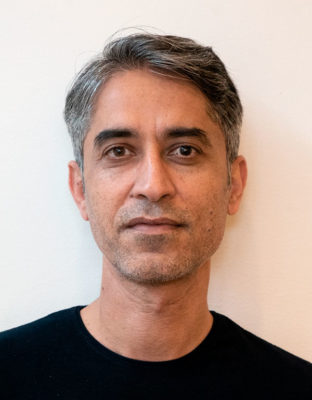
Shahram Ahmadi
PhD candidate, Medical microbilogy
Division of Microbiology, Immunology and Glycobiology – MIG

Ines Ambite
R&D coordinator
Has a master’s degree in Bioengineering from the University of Toulouse, France and is a senior PhD student in Biomedicine. Her research focuses on understanding molecular mechanisms of infection and to develop novel therapeutic targets, preventive strategies and biomarkers markers of susceptibility.
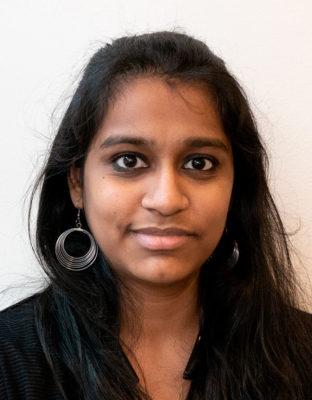
Samudra Sabari
Research project participant at Cancer Infection

Arunima Chaudhuri
Assistant researcher
Division of Microbiology, Immunology and Glycobiology – MIG.
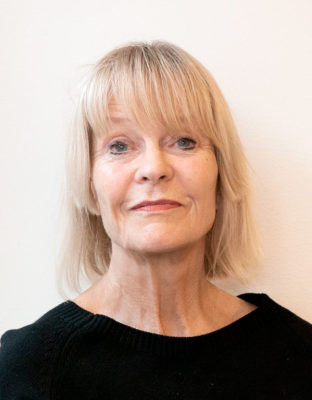
Catharina Svanborg
Chairman of the board
Professor of Clinical Immunology and Chief Physician at Lund University. Member of the Royal Academy of Sciences (1997). Recipient of national and international awards. Founder and chairman of the noted cancer company HAMLET Pharma.
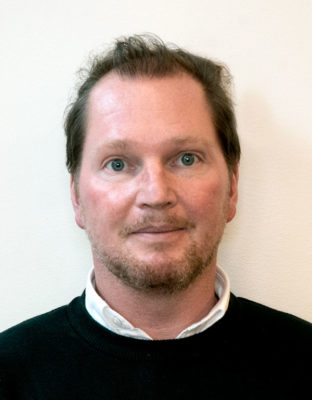
Jakob Testad
CEO, Linnane Pharma
Jakob Testad has extensive experience as a financial controller at Lund University, where he has worked closely with scientists, academic partners and external research-funding agencies. In addition, Jakob Testad is the CEO of Linnane Pharma, while also serving as an administrative resource for Hamlet Pharma and SelectImmune Pharma.
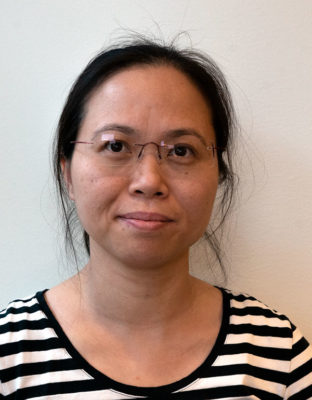
Hien Tran
Researcher
Obtained her PhD degree in pharmacology in 2013 from Yeungnam University South Korea and moved to Lund in 2013 for a postdoc. From 2016, she holds a position as a research scientist, focusing on drug discovery, especially in vivo models.

Murphy Wan
Research project participant at Cancer Infection
Holds a PhD in Toxicology from the University of Hong Kong, 2015. Postdoctoral fellow at the University of Hong Kong and visiting scholar at the University of British Columbia on food toxicology and microbiology. Currently at Lund University as a postdoctoral fellow, focusing on novel therapies for bacterial infections.
